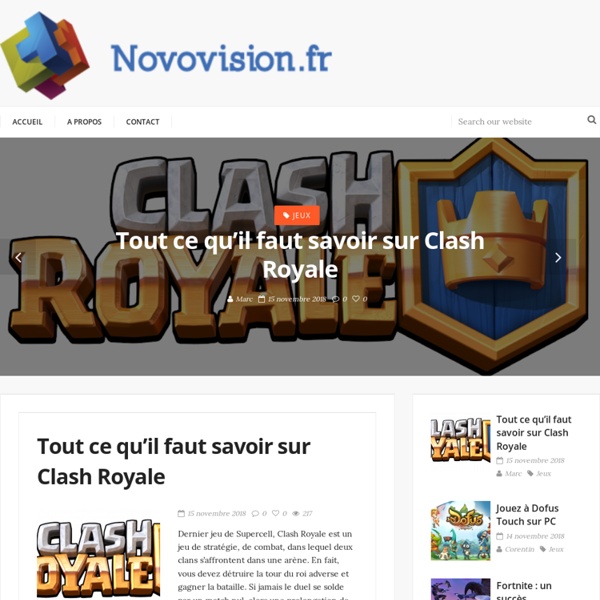



OurBlook Roundup: Journalism Will Survive in Digita OurBlook.com is a website that gathers opinions from today’s top leaders in the hopes of collaboratively finding tomorrow’s solutions. It is funded by Paul Mongerson, a retired CEO who has a long history of philanthropy in the journalism world. In December 2008, those of us who run the site launched a future of journalism interview series. Internet Society (ISOC) Future Internet Scenarios What Will The Internet Look Like In 10 Years? The Internet Society engaged in a scenario planning exercise to reveal plausible courses of events that could impact the health of the Internet in the future. While obviously not intended to be a definitive overview of the landscape or all potential issues, we believe the results are interesting and, we hope, thought-provoking. We are sharing them in the hope that they will inspire thought about possibilities for the future development of the Internet, and involvement in helping to make that happen in the best possible way. Future Scenario Resources Besides viewing the video scenarios below, you can:
Daily Schedule More of Randall's Favorite Learning Resources [ Quiz Script | Text Completion Quiz ] What is your daily schedule? What time do you wake up and go to work or school? How Twitter turns Journalism on its Head? How valuable can social networking/micro-blogging service/platform like “Twitter” way of communication, that too restricted to 140 characters be for crucial journalism? [Image Credit: In Twitter, gone are the “What are you doing?” days. Berners-Lee warns ISPs on net neutrality The inventor of the world wide web, Sir Tim Berners-Lee, has warned internet service providers (ISPs) that plans for a "two-speed" internet go against the principles that have let the net grow so rapidly in the past two decades. "Best practices should also include the neutrality of the net," Berners-Lee told a round table in Westminster on Wednesday morning, convened by the communications minister Ed Vaizey. Content companies, represented by Facebook, Skype, the BBC and Yahoo, squared up to ISPs, with input from consumer representatives including the Open Rights Group, the Consumers' Association and the communications regulator Ofcom. Jim Killock of the Open Rights Group, who was representing consumer interests at the meeting, said afterwards that he was concerned about the direction the debate was going: "The potential for something going terribly wrong is absolutely there.
How the Internet is Affecting Traditional Journalism [SURVEY] In a survey conducted over May and June this year, PR network Oriella asked media moguls how the Internet was affecting their business, their publishing formats and even the quality of the content issuing forth from their newsrooms. In a survey of 770 journalists across 15 countries, the company determined that, while media creators are slightly more optimistic than they were last year about maintaining revenues vis-a-vis the rise of online ad budgets, many are still worried about whether traditional media formats can succeed in the long run. "Concerns about the viability of journalists’ traditional media channels (print, radio or television) have intensified," the report reads. "When asked about the future of their respective publications, over half of those polled believe that these channels may well fold and be taken off the market...
Media Lab: The Cognitive Limit of Organizations This is a slide that I got from Cesar Hidalgo. He used this slide to explain a concept that I think is key to the way we think about how the Media Lab is evolving. The vertical axis of this slide represents the total stock of information in the world. Michael Koretzky: College Journalists Are Good at Consuming Multimedia but Bad at Making It. Why? Earlier this year, I judged a prestigious national contest that chose the best college newspaper website in the country. It was a tough decision. Usually, when a judge says he had trouble selecting a winner, all the entries were so damn good it was hard to tell the difference. Not such wicked leaks For the celebrated novelist and intellectual Umberto Eco, the Wikileaks affair or "Cablegate" not only shows up the hypocrisy that governs relations between states, citizens and the press, but also presages a return to more archaic forms of communication. The WikiLeaks affair has twofold value. On the one hand, it turns out to be a bogus scandal, a scandal that only appears to be a scandal against the backdrop of the hypocrisy governing relations between the state, the citizenry and the press. On the other hand, it heralds a sea change in international communication – and prefigures a regressive future of “crabwise” progress. But let’s take it one step at a time. First off, the WikiLeaks confirm the fact that every file put together by a secret service (of any nation you like) is exclusively made up of press clippings.
Getting 'digital first' right in the 'newsroom' "Digital First!" is a great battle cry, and thank you, John Paton, for giving it to us all. It is pure leadership, a flag planted forward declaring that newspapers now see print as the past and digital as the present and future. As it is adopted in places as disparate as the Guardian in the UK, the student newspaper at the University of Georgia, and at Morris, where I work, we all have to be on guard against a too-facile interpretation, especially in newsrooms. It's not about publishing news online first.